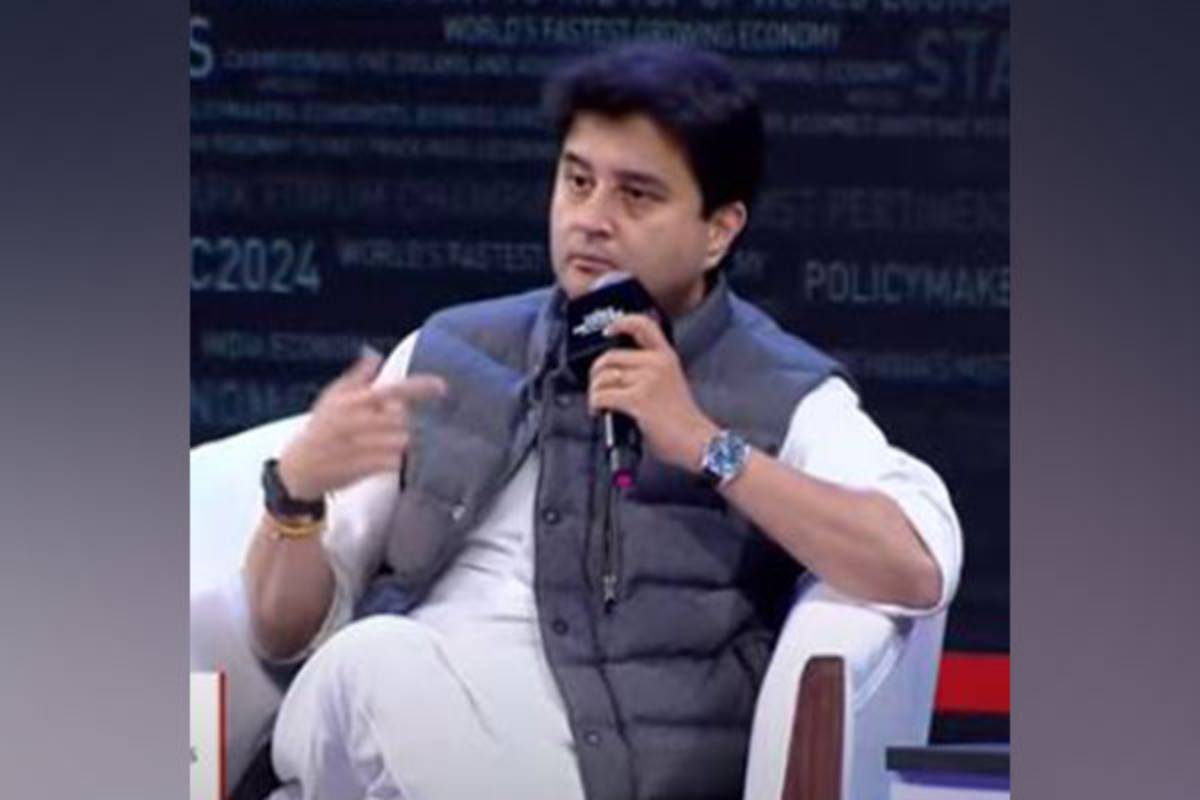Union Minister Jyotiraditya Scindia on Tuesday highlighted the progress made in India’s telecom sector while pushing for the creation of a dedicated telecom manufacturing zone on the lines of Special Economic Zones.
In an interview with ANI, Scindia said that the manufacturing zone is the next step following the establishment of the one lakh BSNL towers across the country and the upgrade of 5G technology.
He said that the government had two options regarding the implementation of the 4G system for BSNL, either using foreign equipment or creating an indigenous solution, but the government chose the challenging latter route.
“When the question was raised regarding the implementation of the 4G system for BSNL, we had two options. One, we establish the system with the help of equipment from foreign entities. Secondly, we could, with the help of Indian companies, create a 4G telecom stack and hardware from scratch, and we choose the difficult path,” the Minister of Communications said.
He lauded the fact that India is now the fifth country globally to have its own 4G system. Stating that after one lakh BSNL towers are established, the government will slowly start working in the 5G system with an upgrade to software.
“Now I can proudly say that the Government of India company C-Dot has been successful in creating the core 4G system, and Tejas Networks, which is under TATA, has also innovated RANs, towers, and BTS and is also a system integrator as TCS. So an all-encompassing domestic solution of 4G has been established by Indian countries. India is the fifth country in the world which has an ingenious system for 4G…We will now try to roll out 4G and also to export this 4G system, and work is also under progress for 5G in the country,” Scindia said.
“After one lakh towers of BSNL are established in the country by next April-May, we will also slowly start the 5G system with an upgrade to software and BTS in those towers after April-May…The third step is the telecom manufacturing zone. As SEZs are made, a manufacturing zone should be made for the telecom sector,” he said.
Scindia also highlighted the importance of manufacturing to the growth of the industry and stated that the government, under Prime Minister Narendra Modi’s vision of Atmanirbhar Bharat, has taken significant steps to boost the telecommunications sector.
The Union Minister mentioned the success of productivity-linked incentive (PLI) schemes, which have benefitted 42 companies, with nearly Rs 4000 crore invested. These efforts have generated an additional Rs 65,000 crore in revenue, Rs 13,800 crore from exports, and created around 25,000 new jobs.
“Manufacturing is extremely key to the telecom sector. As Prime Minister Modi has always envisioned, we must be an Atmanirbhar country. Based on this vision, a lot of major steps were taken for the telecommunication industry. For this sector, productivity-linked incentive schemes were also initiated by the PM. Today, 42 companies are taking advantage of the schemes, and close to Rs 4000 crore has been invested under these PIL schemes in this sector. Because of this, Rs 65,000 crore in additional revenue had been generated. From this close to Rs 13,800 crore, exports have been made, and around 25,000 new employments were generated,” he said.
Scindia also emphasised the growth of India’s mobile phone manufacturing industry. He pointed out India previously produced 5 crore mobile phones annually, and now manufactures 33 crore units, becoming the second-largest mobile phone manufacturer in the world.
The Minister said this achievement is a result of the leadership of Prime Minister Narendra Modi and the country’s aggressive push in the telecom equipment sector.
“In a country where only 5 crore mobile phones were made and about 90 per cent of our mobile phones were imported, today it has become the second largest mobile manufacturer in the world…So the country where only 5 crore mobiles were made, today 33 crore mobiles are now being made. So, this change has been under the leadership of PM Modi, and now in the telecom equipment sector, we are moving aggressively in both private and government areas,” the Telecom Minister said.




